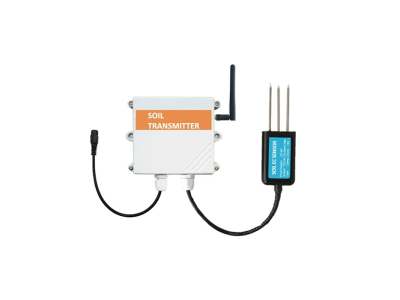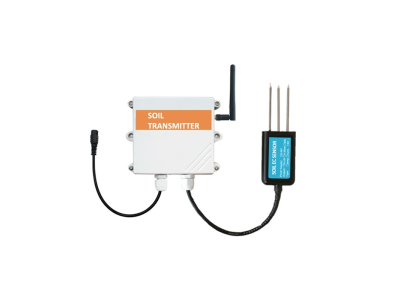Agriculture is the backbone of our society, providing us with food, fuel, and fiber. As the global population continues to grow, ensuring sustainable crop production becomes increasingly crucial. In recent years, soil sensor technology has emerged as a powerful tool for optimizing plant health and agricultural productivity. This article explores the role of soil sensors in monitoring soil conditions, improving resource management, and enhancing plant growth for a more sustainable and efficient agricultural future.

Understanding Soil Sensor Technology: a. Definition and Function: Soil sensor technology involves the use of specialized devices to measure and monitor various soil properties, including moisture content, temperature, pH levels, nutrient availability, and salinity. These sensors provide valuable real-time data that helps farmers make informed decisions regarding their cultivation practices.
b. Types of Soil Sensors: Different types of soil sensors cater to specific measurements. Soil moisture sensors measure the amount of water in the soil, enabling precise irrigation management. pH sensors determine soil acidity or alkalinity levels, influencing nutrient availability. Nutrient sensors detect the presence and concentration of essential elements like nitrogen, phosphorus, and potassium. Temperature sensors monitor soil temperature variations, impacting germination and plant growth. Electrical conductivity sensors measure soil salinity, ensuring optimal nutrient uptake by plants.
Optimizing Irrigation Management: a. Water Efficiency: Soil moisture sensors play a vital role in irrigation management by providing accurate information on soil moisture levels. This data allows farmers to implement precise irrigation practices, avoiding over- or under-watering. Optimal water usage reduces waste and conserves this precious resource.
b. Crop-Specific Requirements: Different crops have varying water requirements at different growth stages. By using soil sensors, farmers can tailor irrigation schedules based on the specific needs of each crop, promoting healthy growth while minimizing water stress.
c. Preventing Diseases: Over-watering can create conditions favorable for the growth of pathogens and diseases. Soil sensors help farmers avoid excessive moisture levels that can lead to root rot or other water-related diseases, thus protecting crop health.
Enhancing Nutrient Management: a. Precision Fertilization: Soil sensors provide real-time data on nutrient levels within the soil, enabling farmers to optimize fertilizer applications. By identifying nutrient deficiencies or excesses, farmers can adjust their fertilization practices accordingly, ensuring that plants receive the right nutrients at the right time.
b. Environmental Protection: Over-application of fertilizers can lead to nutrient runoff, causing water pollution and ecological imbalances. Soil sensors help prevent excessive fertilizer use by providing accurate information on nutrient availability, reducing environmental impact.
c. Enhanced Nutrient Uptake: By maintaining optimal soil nutrient levels, as determined by soil sensors, plants can efficiently absorb nutrients through their roots. This improves nutrient uptake and minimizes nutrient losses, resulting in healthier plants with higher yields.
Tailoring Soil Conditions for Plant Growth: a. Soil pH Management: pH sensors play a crucial role in determining soil acidity or alkalinity levels. Different crops thrive in specific pH ranges, and soil sensors help farmers adjust pH levels through soil amendments (such as lime or sulfur) to create an optimal growing environment for desired crops.
b. Temperature Optimization: Temperature sensors provide insights into soil temperature variations. This information helps farmers determine the best planting times and monitor temperature fluctuations that may affect seed germination and plant growth. By optimizing soil temperature, farmers can maximize crop productivity.
c. Salinity Control: Electrical conductivity sensors measure soil salinity levels, which can impact plant growth. High salinity can hinder nutrient uptake and stress plants. Soil sensors allow farmers to monitor salinity levels and implement appropriate measures like leaching or proper irrigation management to maintain optimal salinity for healthy plant growth.
Integration with Smart Farming Technologies: a. Internet of Things (IoT) Integration: Soil sensors can be connected to IoT platforms, enabling remote monitoring and control. Farmers can access real-time data through smartphones or computers, facilitating quick decision-making regardless of their physical location.
b. Data Analytics and Predictive Models: By combining soil sensor data with advanced data analytics and machine learning algorithms, predictive models can be developed. These models can provide valuable insights into plant health, disease prediction, and optimal resource allocation, helping farmers make proactive decisions and maximize crop productivity.
c. Automation and Precision Agriculture: Soil sensor technology can be integrated with automated systems, such as drip irrigation or precision fertilizer applicators. This integration enables precise and targeted application of resources, reducing waste and optimizing resource utilization.
Conclusion:
Soil sensor technology revolutionizes agriculture by providing farmers with real-time data on soil conditions. By utilizing soil sensors, farmers can optimize irrigation practices, tailor nutrient management, and create an ideal environment for plant growth. This leads to increased crop productivity, improved resource efficiency, and enhanced sustainability in agriculture. As research and development in soil sensor technology continues, we can expect further advancements that will unlock the full potential of precision farming, paving the way for a more sustainable and productive agricultural future. From ground to growth, soil sensor technology empowers farmers to make informed decisions and cultivate healthier crops, ensuring food security for generations to come.






